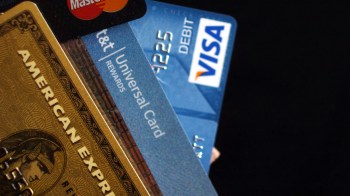As you probably know, there have been so many bank failures this year, that the FDIC is starting to run out of money. It doesn’t have many options for getting more. The FDIC fund insures the money you have at the bank. And one of the options is — you guessed it — to borrow from the taxpayers.
Sheila Bair addressed the issue this morning, as reported by the New York Times:
So far this year, 92 U.S. banks have failed, compared with 25 during all of last year and only three in 2007. Those failures have whittled the balance of the insurance fund down to $10.4 billion from $45 billion a year ago. The FDIC is careful to note that it has $42 billion in reserves to handle failures over the next year…
“We are carefully considering all our options, including borrowing from Treasury,” Bair said, referring to the agency’s $500-billion line of credit with the Treasury Department.
But regulators are still reluctant to tap the line of credit because they want to avoid temporarily using taxpayer money to clean up the banking mess, she said.
There are other options. They include assessing more fees on banks. The FDIC has already assessed one emergency fee this year of $5.6 billion and has the authority to assess two more.
Reuters blogger Rolfe Winkler makes an appeal to not to borrow from the taxpayers:
This would be a shame. FDIC should keep charging special assessments on banks before taxpayers are forced to borrow to replenish the fund… FDIC charges special assessments as a % of total deposits, which means the biggest banks pay the most. 95% of banks got a free ride for years, not paying ANY premiums for deposit insurance from 1996-2006. Now they have to pay. Special assessments are an good way to shrink the financial system; it reduces the profitability of the business!
But Senator Carl Levin (D-Michigan) is pleading the other way. He says more fees will hurt troubled community banks. He wants to the FDIC to borrow from the Treasury.
“Adding yet another major financial obligation during this crisis could further deplete the capital of these small financial institutions, making it difficult for them to extend the credit needed to turn our economy around,” Levin said in the letter (to Bair).
He does have a point. Listen to this story from public radio in Northern Colorado about the ripple effects of a local bank failure on farmers.
Still, it’s difficult to swallow the idea of any more loans to banks. I found this comment in a Wall Street Journal blog about it:
Sure, FDIC borrows money from treasury. Treasury borrows money from Fed. Fed borrows money from printing machine.
Where does printing machine borrow money from?
There’s a lot happening in the world. Through it all, Marketplace is here for you.
You rely on Marketplace to break down the world’s events and tell you how it affects you in a fact-based, approachable way. We rely on your financial support to keep making that possible.
Your donation today powers the independent journalism that you rely on. For just $5/month, you can help sustain Marketplace so we can keep reporting on the things that matter to you.


















